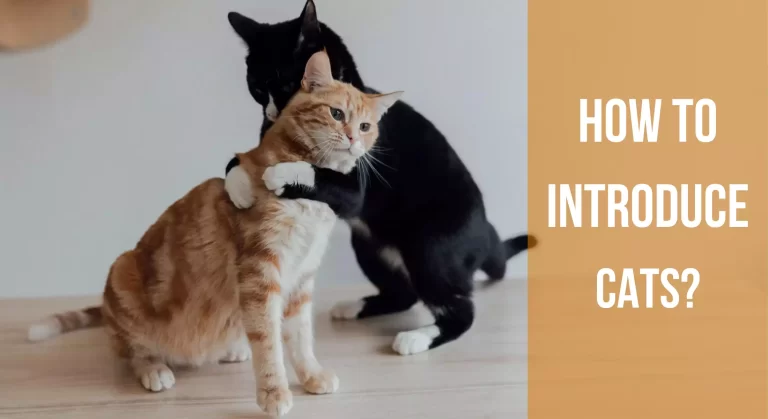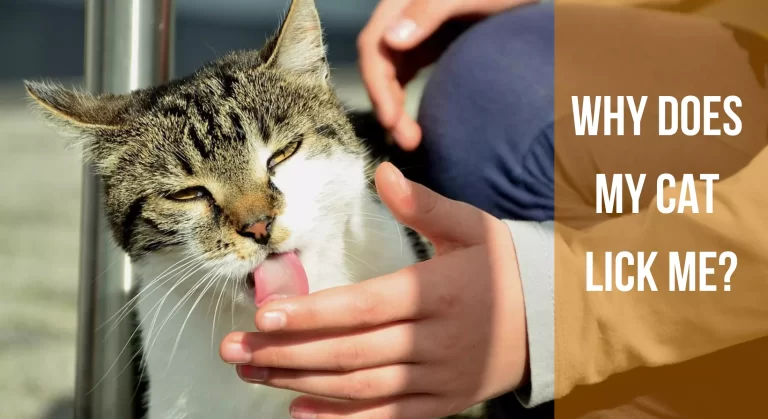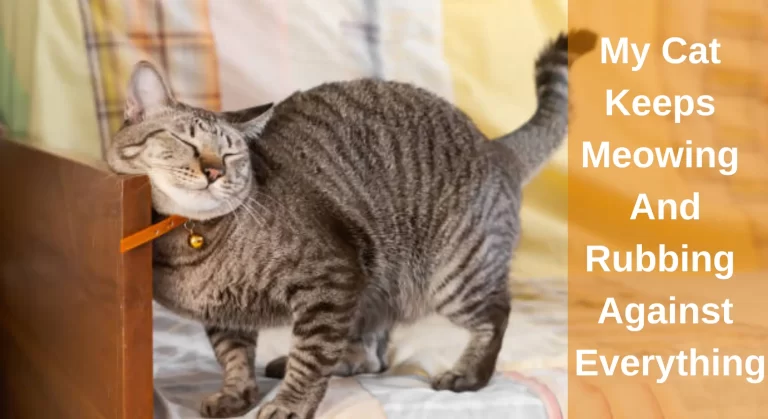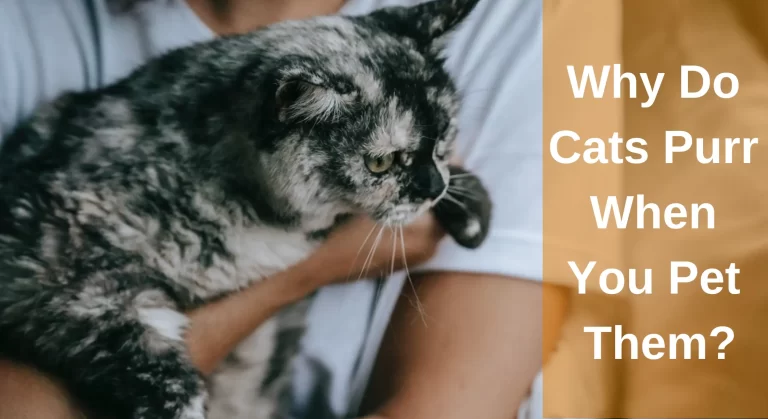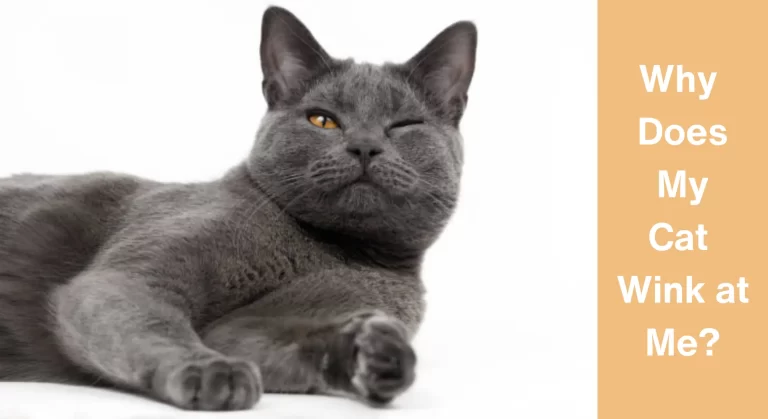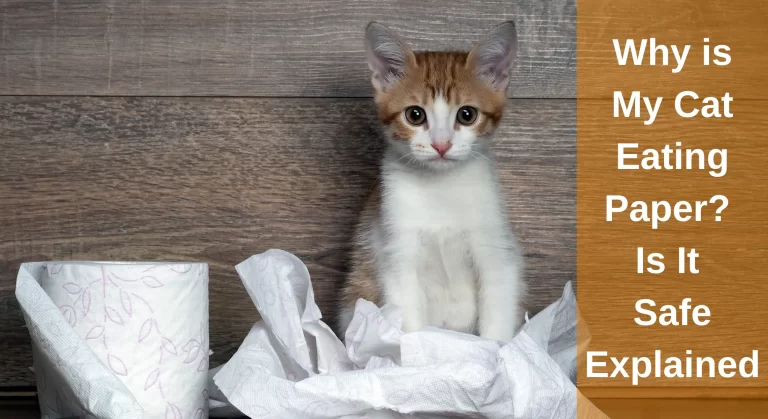Why Is My Cat So Affectionate All of a Sudden?[Answered]
Cats have a reputation for being aloof and independent creatures that don’t crave human attention as much as dogs do. However, there are times when our cats surprise us by showering us with affection. While this might seem like a pleasant surprise, your cat’s personality change will have a reason. “Why is my cat so affectionate all of a sudden”
Cats can become suddenly affectionate for a variety of reasons, such as feeling happy and content, seeking attention, feeling insecure or anxious, hormonal changes, seasonal changes, underlying health issues, or simply due to the bond that you have built with them.
In this article, we’ll explore the possible reasons why your cat might be suddenly showing more affection and what you can do to strengthen your bond with your feline friend.

Types of Affectionate Behaviors in Cats
Affectionate behaviours in cats can be physical, verbal, or behavioural, and they differ from typical feline behaviour in various ways.
Physical Displays of Affection
Physical displays of affection are the most common ways cats show their love for their owners. Some common physical displays of affection include:
- Purring
- Kneading
- Rubbing against your legs or body
- Licking or Grooming You
- Sitting on Your Lap or Next to You
Verbal Displays of Affection
Verbal displays of affection are less common in cats than physical displays, but they can still be a way for cats to show their love for their owners. Some common verbal displays of affection include:
- Meowing
- Chirping or Trilling
Behavioral Displays of Affection
Behavioural displays of affection are less obvious than physical or verbal displays, but they can still be a way for cats to show their love for their owners. Some common behavioural displays of affection include:
- Bringing You Gifts
- Following You Around
- Sleeping with You
Reasons: Why is My Cat So Affectionate – Cat’s Clinginess Behaviour
If your cat has suddenly become more affectionate, there are several possible reasons behind this change in behaviour. Here are some common explanations:
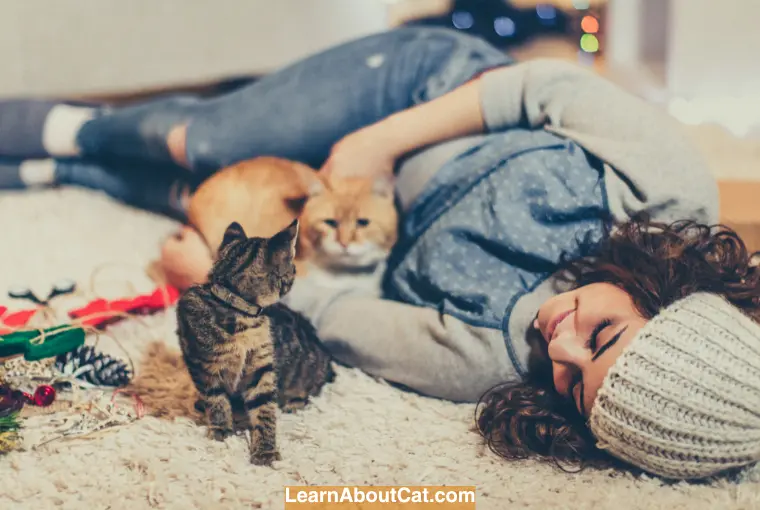
1. Your Cat is Feeling Happy and Content
The most common reason why a cat may suddenly become more affectionate is that they are feeling happy and content.
Cats are highly sensitive animals, and their moods can change based on their environment, the people around them, and their physical and emotional needs.
For example, If your cat has recently been given a new toy, been provided with plenty of attention and playtime, or just had a comfortable nap, they may be feeling more loving and affectionate towards you.
For instance, a new toy, increased attention and playtime, or simply a comfortable nap can evoke feelings of fondness and attachment towards their human companion. It is not uncommon for cats to display bursts of affection when they feel satisfied and fulfilled.
2. Your Pet has a Medical Issue
Cats can’t tell us when they’re feeling unwell, so they might display changes in their behaviour as a way of communicating that something is wrong.
If your cat is suddenly more affectionate, it might be a sign that they’re feeling unwell and seeking comfort and reassurance from you.
So it’s crucial to monitor their behaviour for any signs of illness or discomfort such as a lack of appetite, lethargy, vomiting, or diarrhoea. Take your cat to the vet if you notice any changes in appetite, lethargy, or unusual behaviour.
However, how your cat chooses to communicate their sorrow and unhappiness will determine how this turns out.
Find Out: Do Cats Get More Affectionate With Age?
3. Your Cat is Feeling Insecure or Anxious
Another reason why your cat is more affectionate than usual is due to anxiety and insecurity if they feel threatened or uncomfortable in their environment. When they’re stressed, cats may seek comfort from their owners and become more affectionate.
Cats are highly sensitive creatures, and even small changes can affect their behaviour. There are several situations that might stress out cats, some of which are more concerning than others.
For example, moving to a new house or introducing a new pet or family member can cause stress and anxiety in your cat, making them seek more attention and affection. Make sure to introduce changes gradually and provide a safe and comfortable environment for your cat.
4. Attention and Affection
Felines yearn for the affectionate touch and attention of their human companions. In situations where you may have been absent for a while, or preoccupied with other affairs, cats may exhibit an unusual level of fondness towards you upon your return.
Given their social and interactive nature, if cats feel isolated or neglected, they may become more vocal or demand more attention from their caregivers.
While it’s important to shower your cat with love and attention, it’s equally vital to recognize their boundaries and respect their independence.
In addition to this, cats may also display heightened affection when they sense that their owner is undergoing emotional turmoil or experiencing a difficult phase in life.
Also, Check Out: Can Cats Be Obsessed With Their Owners?
5. Jealousy
If you have recently welcomed a new pet or family member into your abode, your beloved feline companion may require extra attention and reassurance from you.
This behaviour is frequently observed in cats who were formerly the sole pet in the house and now have to share their living space while competing for attention amidst the new additions.
It is critical to be mindful of your cat’s behaviour during this transitional phase and ensure that they receive the essential attention and solace required to adapt to the changes.
6. You’re Expecting
Curiously, it’s worth noting that your feline friend may display more affection towards you if you are pregnant or expecting a baby. Cats possess a heightened sense of smell and can detect variations in your hormones and behaviour, which can result in them exhibiting more attention and fondness towards you.
They are observant creatures and can detect even the slightest alterations in your conduct and body language, such as fluctuations in your mood or changes in your posture. It’s crucial to introduce your cat to your newborn gradually and safely to guarantee a seamless transition for all parties involved.
Read more: Do Cats Get Clingy When You Are Pregnant?
7. Hormonal Changes
Hormonal changes can also impact a cat’s behaviour. If your cat is female and not spayed, it may be exhibiting affectionate behaviour due to being in heat.
If your cat is in heat, you’ll also notice other signs, including:
- Excessive meowing
- Rubbing against things
- Trying to go outside
This is a natural cycle in a cat’s reproductive system, and they may display more affectionate behaviour during this time while male cats may become more territorial or aggressive.
Check Out: Female Cat Behavior After Spaying: Expected Changes?
8. Your Pet Cat is Ageing
As cats age, they may display more affectionate behaviour towards their owners. This is especially noticeable in cats who were once highly active but have slowed down due to reduced physical abilities, changes in their socialization needs, or a preference for more attention and comfort in their senior years.
Nonetheless, senior cats are also more vulnerable to a range of health concerns, and being unwell can be another reason why cats may act more lovingly than usual.
9. Seasonal Changes
Finally, seasonal changes may also affect a cat’s behaviour just like humans. If your cat seems more affectionate during certain times of the year, it may be because of changes in its environment, temperature, or daylight hours.
For example, cats may become more cuddly and affectionate during the colder months, seeking warmth and comfort from their human companions.
Similarly, some cats may be more affectionate during certain times of the day, such as in the evening when they are winding down and ready to relax.
How to Respond to Your Cat’s Affection?
If your cat is suddenly more affectionate than usual, it’s important to respond appropriately to its needs. Here are some tips on how to respond to your cat’s affection:
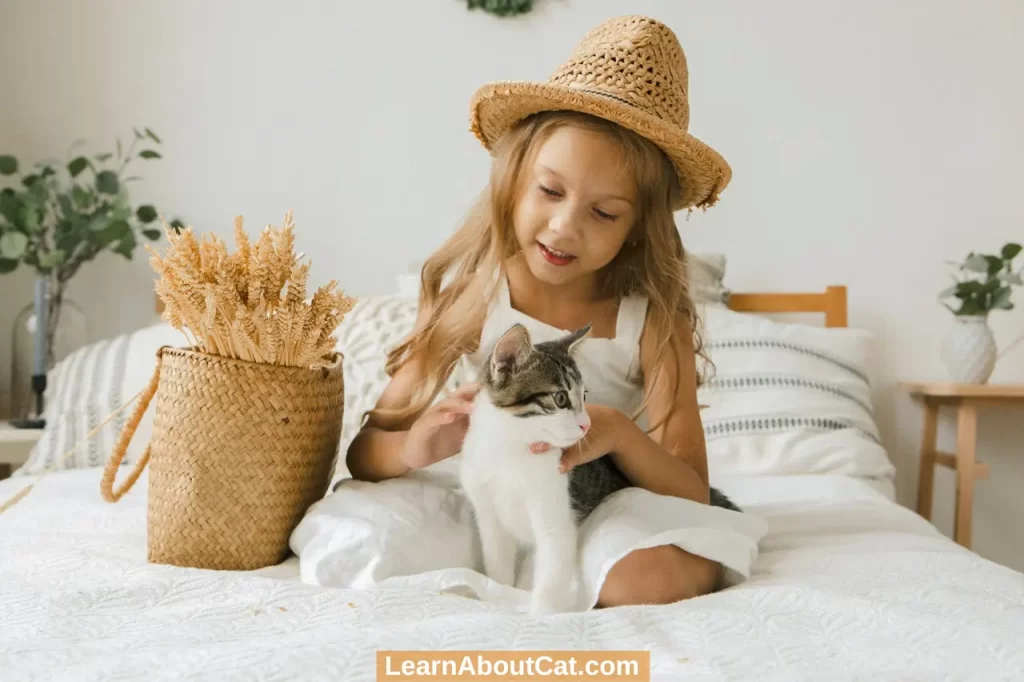
1. Understanding your cat’s needs
Every cat is unique, and it’s important to understand what your cat’s individual needs are. Some cats may want more attention and affection, while others may prefer to be left alone.
By paying attention to your cat’s behaviour and body language, you can better understand what they want and respond accordingly.
2. Avoiding overwhelming your cat
While it’s important to show your cat love and affection, it’s also important not to overwhelm them. Some cats may become stressed or anxious if they feel too much pressure or attention.
Make sure to give your cat plenty of space and time to themselves, and avoid forcing affection on them if they’re not in the mood.
3. Creating a comfortable environment
Cats are sensitive creatures, and their environment can have a big impact on their mood and behaviour.
Reassure your cat if it appears scared or worried. Your cat will eventually settle down and return to its normal behaviour. You should take this as a complement since cats would only be so vulnerable if they had total faith in you.
Make sure to create a comfortable and safe environment for your cat, with plenty of places for them to hide, play, and relax.
4. Playing with your cat
Playing with your cat is a great way to bond and show affection. Cats love to play, play for at least 20 minutes twice a day and it’s a great way to release energy and reduce stress.
Make sure to provide your cat with plenty of toys and games that they enjoy.
5. Grooming your cat
Grooming your cat is a great way to express affection and strengthen your bond. Cats love being groomed, and it helps them stay clean and healthy. Use a gentle brush and take your time to avoid overwhelming your cat.
6. Quality time and attention
Spending quality time with your cat is also important in responding to their affection. Set aside some time every day to play, cuddle, and interact with your cat to show them that you care.
7. Respect their space
Respecting your cat’s boundaries and personal space is equally important. If your cat wants to be alone or isn’t in the mood for attention, give them space and avoid forcing yourself on them.
Always watch your cat’s body language to make sure they’re comfortable and content.
Frequently Asked Questions
Why do cats suddenly become clingy?
Cats can become clingy for various reasons, such as feeling insecure or anxious, changes in their environment, or wanting attention from their owners
Is it normal for cats to suddenly become more affectionate?
Yes, It’s normal for cats to show sudden changes in behaviour, including increased affection towards their owners.
What does it mean when my cat kneads me?
When cats knead their owners, it’s a sign of happiness and relaxation. This behaviour is learned when they are nursing as kittens and is a way for them to show affection and create a comfortable spot for themselves.
Why has my cat suddenly started to cuddle up to me?
There could be a variety of reasons why your cat has suddenly started to cuddle up to you. It could be due to changes in their environment, such as a new family member or pet, or simply due to the bond that you have built with them.
Why is my female cat suddenly very affectionate?
If you have a female cat that is suddenly very affectionate, it could be due to hormonal changes, changes in the weather or seasons, or underlying health issues. It’s best to take your cat to the vet for an exam to rule out any potential health issues.
Why is my cat spending more time with me?
Cats are social creatures that crave attention and stimulation. If your cat is spending more time with you, it could be due to the bond that you have built with them or simply because they enjoy your company. Spending quality time together and providing positive reinforcement can help strengthen your bond with your cat.
How can I show my cat that I love them?
Showing your cat that you love them can be as simple as spending quality time together, providing a comfortable environment, and offering treats and toys as rewards.
Can cats be affectionate towards strangers?
While cats may be friendly towards strangers, they may not show the same level of affection as they do towards their owners. Cats are social animals, but they often have a close bond with their owners that is based on trust and familiarity.
Should I be worried if my cat suddenly becomes more affectionate?
Sudden affectionate behaviour is usually a sign that your cat is feeling content and happy. However, if the behaviour is accompanied by other concerning symptoms, such as a loss of appetite or lethargy, it’s important to take your cat to the vet to rule out the underline cause and respond accordingly.
What should I do if my cat’s sudden affection is causing issues?
If your cat’s sudden affection is causing issues, such as interfering with your work or sleep, it may be worth consulting with your veterinarian for guidance on how to best meet your cat’s needs while also maintaining your own routines and responsibilities.
Conclusion
In conclusion, it is important to be cautious when dealing with large behavioural changes, such as increased affection, which can be a sign of many things, including health issues, hormonal changes, stress or anxiety, or a desire to strengthen their bond with you.
Understanding your cat’s behaviour and needs can help you respond appropriately to their sudden increase in affection. Strengthening your bond with your cat can be a rewarding experience that benefits both you and your feline companion. Remember to spend quality time together, provide a comfortable environment, and respect your cat’s boundaries.
Who is Isabella?
My name is Isabella, and I am a dedicated and knowledgeable cat enthusiast. With years of experience caring for cats and a deep love for felines, I made a mission to help other cat lovers navigate the challenges of cat ownership.

